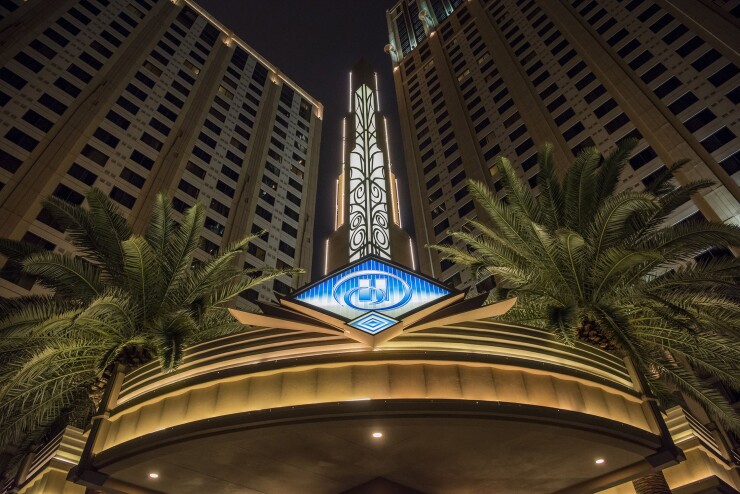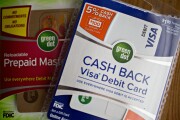
Prepaid cards are having a moment as new digital disbursements take off, a wave U.S. Bank is hoping to ride as it extends its prepaid business into the hospitality industry.
The bank is focusing on tips and other gratuities, which are a good fit for the immediacy of prepaid cards but usually rely on cash. The
U.S. Bank is using technology from Grazzy, a five-year old technology firm founded in 2021 that supports cashless tipping for service industry employees, in hotels, bars, restaurants, and other service businesses. Grazzy works with businesses to accept tips from customers and help disperse those tips to their employees.
"There was a period of time where restaurants were paying to have cash delivered on site so that they could pay out their employees, because that was an expected benefit of being a server or being a bartender," Ben Osmond, senior vice president of business development at U.S. Bank, told American Banker. "Payments have started to change in the marketplace. The old speed was green in my pocket. The new speed today is we can still pay you the tips that you earned today by the end of your shift… you just don't have to carry around cash."
Tip disbursement has historically been challenging for businesses because of cash flow concerns: Tips need to be paid out – usually in cash – at the end of the night, but those tips are sometimes provided through digital payments.
U.S. Bank, with its fintech partner Grazzy, is hoping its
How Grazzy works
In addition to digital prepaid technology that supports gratuity payments, the Grazzy collaboration provides a distribution network for U.S. Bank.
The Austin, Texas-based Grazzy is a preferred vendor with all four major hotel brands, including Hilton, Hyatt, IHG and Marriott, and works with at least 50% of the top 10 hotel operating groups in the country, Courtney White, vice president of growth and operations at Grazzy, told American Banker.
Together with U.S. Bank, it provides workers with an open-loop debit card that can be loaded with worker's tips – or even their full paycheck. Grazzy manages the back-end program to know which employee members are entitled to a portion of the tip and maintains the relationship with the hotel operators, while U.S. Bank issues the card that the funds are loaded on and processes the payments made with those cards. Workers can also withdraw funds from ATMs.
For businesses, digital tip disbursement helps drive down retention costs and increase visibility into team performance, White said. For employees – many of which are unbanked or underbanked – it means increasing earnings and financial inclusion.
"When we think about hospitality, especially when we think about a housekeeper, so often their service is in silence," White said. "So how can I be able to really look at who are my top performers? How do I figure out ways to celebrate them? How do I think about ways to promote them?"
For U.S. Bank, its work with Grazzy illustrates the inevitable nature of bank-fintech partnerships that allow it to move into adjacent and complimentary areas of its business, Osmund said.
"Payments have changed and it's moving fast… Partnership with fintechs is going to be very important right moving forward," he said. "There was a time when consumers appreciated a choice on how they were going to receive their funds. They now expect it, and what is wonderful about prepaid is it doesn't need to be the method of payment, but it can be an option for disbursements."
Prepaid cards find broader usage
Commercial applications for prepaid cards have been growing at a fast clip when compared with consumer use cases as businesses look for new ways to incentivize their employees, Jordan Hirschfield, director of prepaid advisory services at Javelin Strategy & Research, told American Banker.
"It could be anything from, 'Hey, it's your birthday, you get a $25 [gift] card,' or if you're a sales person on a [Sales Performance Incentive Funds], that might be how they pay it out," he said.
Javelin estimates that the prepaid card industry is growing at about an 8% compound annual growth rate, led by exponential increases in gaming and gambling but hindered by static government growth.
Payroll-benefit use cases have been growing at 8% CAGR, making tip disbursement another "great application" for open-loop, reloadable cards, Hirschfield said.
"A lot of hospitality workers still want their payout immediately," he said.






